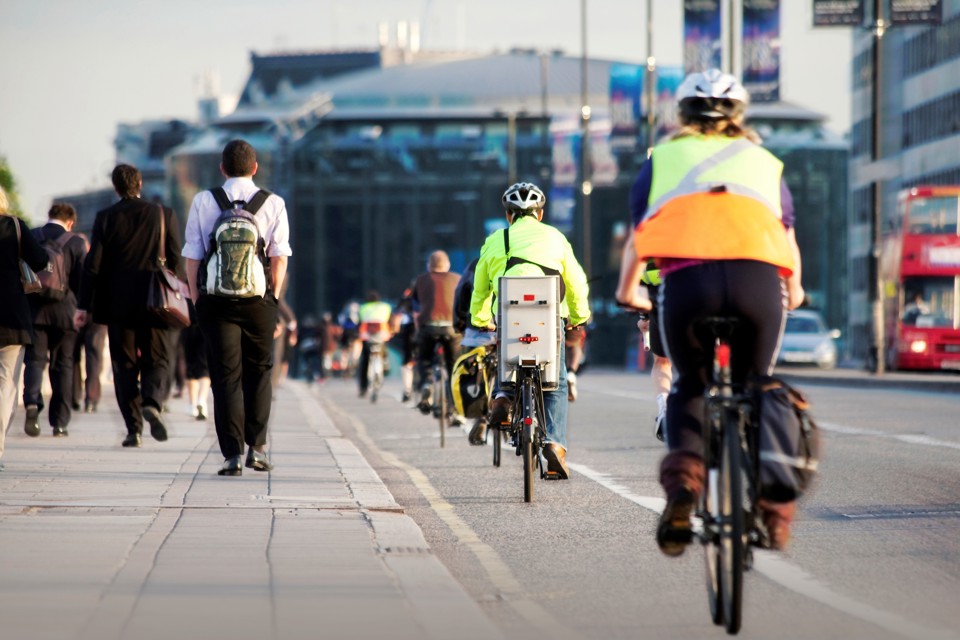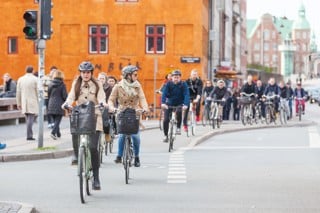Plans to increase walking and cycling in England include new powers for local authorities to fine drivers for motoring offences and the country’s first ‘zero-emission’ city.
The Prime Minister, Boris Johnson, outlined the Government’s plans today (Tuesday, July 28), following a commitment made in May to spend £2 billion encouraging more people to choose so-called active travel options.
They include, new enforcement powers that will allow local authorities, rather than the police, to enforce against moving traffic offences such as disregarding one-way systems or entering mandatory cycle lanes.
The change has already largely taken effect in London, where reports suggest it has significantly reduced police workload on traffic offences, allowing officers to prioritise more important matters, while also improving enforcement.
The Government is proposing that motorists be issued with a warning for a first offence, and fines for subsequent offences.
The changes to enforcement are just one small part of a package of measures published by the Department for Transport (DfT) in a new report – Gear change: a bold vision for cycling and walking.
Johnson argues that to build a healthier, more active nation, “we need the right infrastructure, training and support in place to give people the confidence to travel on two wheels.
“That’s why now is the time to shift gears and press ahead with our biggest and boldest plans yet to boost active travel – so that everyone can feel the transformative benefits of cycling.”
The report includes plans to create at least one zero-emission city. It says that the DfT is looking for at least one small or medium-sized city which wants to create a zero-emission transport system, with extensive bike lanes, an all-electric (or zero-emission) bus fleet, and a ban on nearly all petrol and diesel vehicles in the city centre, with deliveries made to consolidation hubs and the last mile being done by cargo bike or electric van.
The initiative could be done in conjunction with the existing competition for an all-electric bus town, it says.
PHYSICAL SEPARATION
Elsewhere in the report, it stresses that the Government will no longer fund new cycle route provision on busy roads which consist of painted markings or cycle symbols.
Instead, it wants to see as many as possible of the existing painted lanes upgraded with physical separation. It says that cycles must be treated as vehicles, not as pedestrians.
New cycle provision which involves sharing space with pedestrians, including at crossings, will also no longer be funded. Again, the report says it wants many of the existing facilities to be upgraded with physical separation.
Furthermore, it argues that a quicker way of providing safe, low-traffic cycling is to close roads to through traffic, usually with simple point closures, such as retractable bollards, or by camera enforcement. This, it says, may be useful where the road is too narrow for a separated cycle lane.
However, it stresses that the closure would only affect through traffic. Residents, visitors, or delivery drivers needing to reach anywhere along the road would still be able to do so – though they might have to approach from a different direction. For example, a small number of routes from key suburbs into a city could become bus and cycling corridors, it said.
Transport secretary Grant Shapps says that coronavirus has provided the country with a “once in a lifetime opportunity” to create a shift in attitudes.
“The measures we’ve set out today in this revolutionary plan will do just that. No matter your age, how far you’re travelling, or your current confidence on a bike – there are plans to help and support you.”
To encourage people to continue to take up cycling, cycle training will be made available for every child and adult who wants it, accessible through schools, local authorities or direct from cycle training schemes.
More cycle racks will also be installed at transport hubs, town and city centres and public buildings, and funding will go towards new bike hangars and on street storage for people who don’t have space to keep a bike at home.
CHANGES TO HIGHWAY CODE
Furthermore, the Government has launched a consultation on the Highway Code to better protect pedestrians and cyclists; improving legal protections for vulnerable road users; and raising safety standards on lorries.
The main alterations to the code being proposed are:
- Introducing a hierarchy of road users which ensures that those road users who can do the greatest harm have the greatest responsibility to reduce the danger or threat they may pose to others.
- Clarifying existing rules on pedestrian priority on pavements, to advise that drivers and riders should give way to pedestrians crossing or waiting to cross the road.
- Providing guidance on cyclist priority at junctions to advise drivers to give priority to cyclists at junctions when travelling straight ahead.
- Establishing guidance on safe passing distances and speeds when overtaking cyclists and horse riders.
BIKE REPAIR VOUCHERS
Alongside the launch of the strategy, today the first batch of bike repair vouchers worth £50 will be released.
The scheme aims to help more people choose cycling over public transport, with vouchers released in batches in order to help manage capacity across participating stores.
The first 50,000 will be available just before midnight tonight (Tuesday, July 28) on a first come first served basis to those who register online.
Government says it will work closely with industry during this first pilot launch to monitor its success and adapt the scheme as necessary before rolling it out more widely.






















Login to comment
Comments
No comments have been made yet.